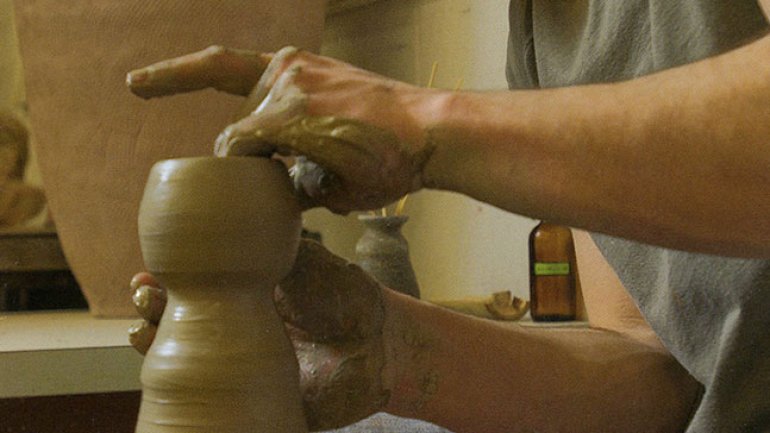A Potter's Journey: Part Three
Conquering Art Major Anxiety
During my freshman year of college I was a biology major with focus in pre-medicine. I passed both pre-med classes, but I hated it. I loved art and aced my first 3D design class, but I felt like switching to an art major meant giving up a stable, wealthy career path to potentially become a starving artist.
While the financial risks scared me, I saw opportunity in these risks. Right from the beginning of college, my overarching goal was to find a way to make a prosperous living while being an artist. With my parents' blessing and the advice "Well, you can always be a teacher…" recurring in every conversation with them, I made the switch.
"Fear is the greatest problem for us potters. Fear of failure, fear of success, fear of being accepted or rejected. If we can work without it, work for the joy of working, then we are free. Because we are no longer working for money, for fame, or for mother, but for ourself. Having no fear leaves us free to take risks and thereby learn from our failures and successes." ~ Jenny Lind, from the catalogue The Studio Potter; A Question of Quality, 1979
I chose ambition over fear, and it was one of the best decisions of my life. It's no secret that artists tend to struggle with money. This was my biggest fear. There are three things I did during college that helped me capitalize on my art classes and manifest those experiences into a successful art career:
- Focused on the pottery wheel. Even when I experimented between functional pottery and abstract sculptural installations like "Mindscape," my work still originated from the wheel, and cultivated my pottery skills.
- Documented. My professor used to say, "If you don't have a high quality photo of your art, it can be like it never existed."
- Sacrificed time. Some projects simply required ridiculous amounts of time to achieve stunning intricacy and worthwhile results.
In my senior year of college, our class had 20 art majors. I asked the class, "What does everyone want to do when they graduate next year?" The room burst into laughter. It was obvious that most of us didn't know, but this is not unique to art majors. No field of study guarantees a job and stable career.
In any field, we learn by emulating the most successful individuals. Take Jeff Koons, for example. He created Balloon Dog, (Orange), which holds a record as the most expensive piece of art sold at auction by any living artist at $58.4 million. In a television interview with Charlie Rose, he defined art as "a vehicle which helps us fine-tune our relationship with both the external and internal lives that we have."
When I hear Koons describe art as a "vehicle," I think of a car. I think back to my fellow classmates, and I picture the cars we drove. Image the car you drove in your early 20s. For most of us, it wasn't the most flattering; it was probably used, rusted – a tool to get from point A to point B. So of course my classmates laughed at my question. I should have focused on the experts in our field. I should have asked, "Based on Koons' analogy of art as a vehicle, use that metaphor to relate your art to a car. Is it a school bus? A VW Beatle? What kind of car exemplifies your artistic drive?" My answer would have been a black Lamborghini.
Exemplifying the experts – in any field – creates a mindset that drives success. It drove me to take an honors thesis, ace it, and graduate magna cum laude with distinction. It drove me to launch a business immediately after graduating, and it currently drives my career as a full-time potter. Soon it will help me sell enough pottery to live above minimum wage and become profitable. This mindset has been (and will continue to be) the key to a successful life as an artist and entrepreneur.
While a potter may never break Jeff Koons' record – and would probably never be interested in doing so, I believe that his career milestones are important. He works at the pinnacle of the art world, and his success is an example of the limitless financial possibilities available to all artists in today's globalized society.




